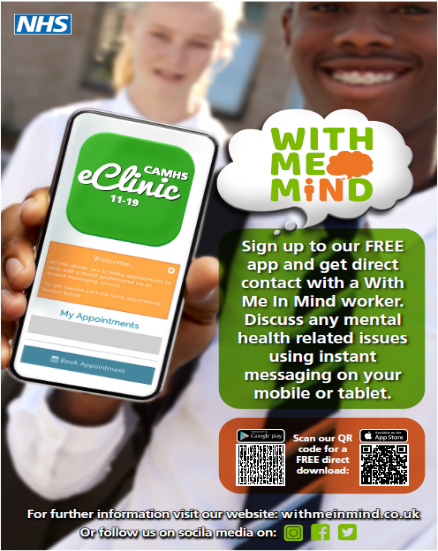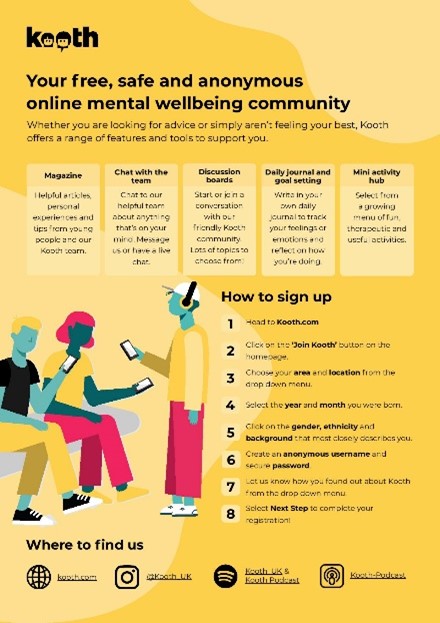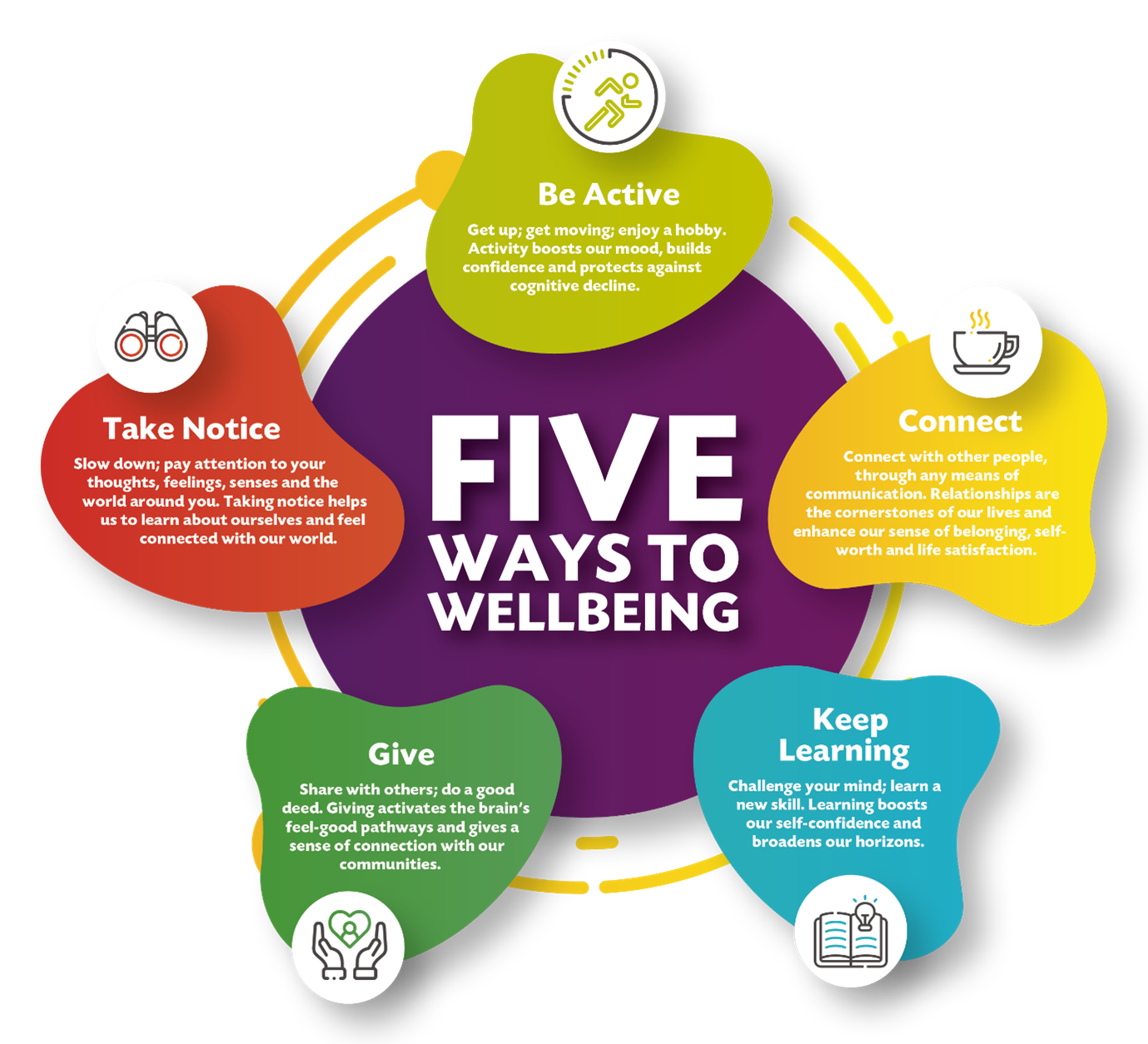Wellbeing
Wellbeing
What is Wellbeing
The term “wellbeing” can be used to describe our complete health, including our physical, mental and emotional health. When we have good levels of wellbeing we feel that life is in balance and that we can generally cope well. We feel motivated and engaged and are able to show resilience and “bounce back” from life’s challenges.
Just like physical health, we all have mental/emotional health; there will be times when our mental health may not be as good as it could be; when this happens, some emotions we may feel are feeling down, sad, quiet, upset, angry, frustrated.

But like physical health, you can also do things to help look after your mental health. It is really important to keep regular routines wherever possible, such as, attending school and lessons as well as having some set times to do various activities throughout your week.
Our school offers a range of services to help students develop positive mental health and wellbeing and support those experiencing mental health issues. The pastoral team support positive mental health and wellbeing across school.

Looking After Yourself
The country was impacted emphatically by the Covid-19 pandemic and around a third of adults and young people reported a decline in their mental health as a result of this. As we now move on from the pandemic it is important to realise that just because we can now be vaccinated against the virus, that doesn’t mean that mental well-being is also cured. We now face many different challenges both at school and at home. Post-pandemic, it is important to make sure that we have the right support in place for our students and the wider community here at Dinnington High School.
Taking care of our mental health and checking in on others is something that we can all do. Remember when they tell you on aeroplanes that you need to put on your own oxygen mask before helping others, it’s like that. Try to plan your days or weeks to include something from each of the ‘5 ways to wellbeing’.

1. BE ACTIVE
Regular physical activity is associated with lower rates of depression and it doesn’t have to be intense to make a difference. Do as much or as little as you can – you could try walking, dancing, running, cycling or gardening.
2. CONNECT
People who are connected with family, friends or people living in their community are happier, physically healthier, live longer and generally have fewer problems mental health problems. To connect with others, you could join a group, help a friend, family member or colleague or try volunteering.
3. GIVE
It has been proven that people who offer an act of kindness once a week over a six-week period report an improvement in their wellbeing. Giving could be smiling at someone and saying thank you. It could be volunteering within the local community or doing something nice for a colleague or friend.
4. KEEP LEARNING
People should never stop learning. Learning throughout life enhances self-esteem, increases confidence, encourages social interaction and generally leads to people having a more active life. Why not learn a new skill like cooking, playing an instrument, fixing a bike, photography or painting.
5. TAKE NOTICE
Life can be very busy with little time to stop and reflect. Studies have shown that when people are aware of what is taking place in the present it directly enhances well-being. People worry less about the future and what has happened in the past and can see what really matters, allowing them to make positive choices. Stopping and observing; spending time with friends and family; enjoying nature; and taking a different route home from work or the shops noticing what is different are all ways to take notice.
Here you will be able to find various links and tips to help us to maintain well-being on a day to day basis. You will also find links to external support services which are free and confidential ways to source support if you are struggling with any aspect of mental health. You’ll also find well-being activities and links for students. There are also some handy PDF guides for parents around supporting the mental health of their children. Finally, you’ll find some links to local services and we highly recommend you visit the With Me In Mind Website which is a goldmine of information and well-being activities.

